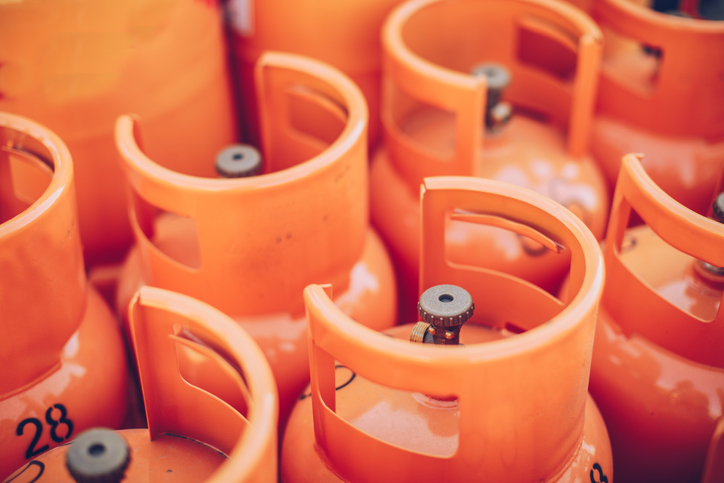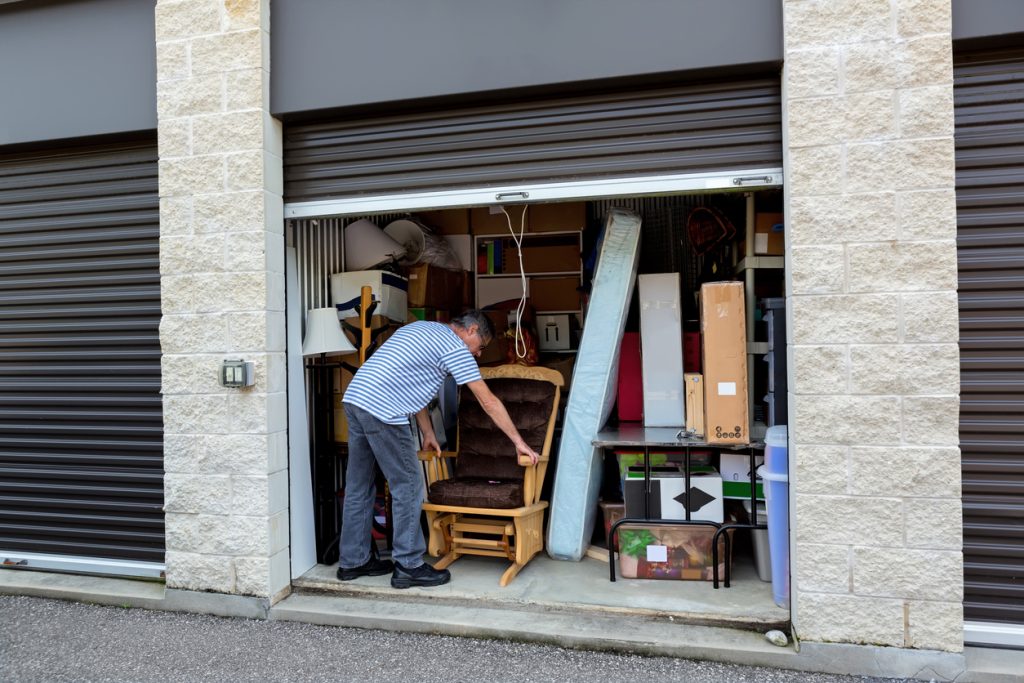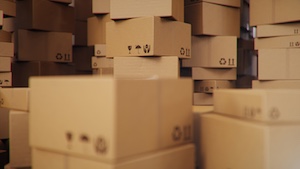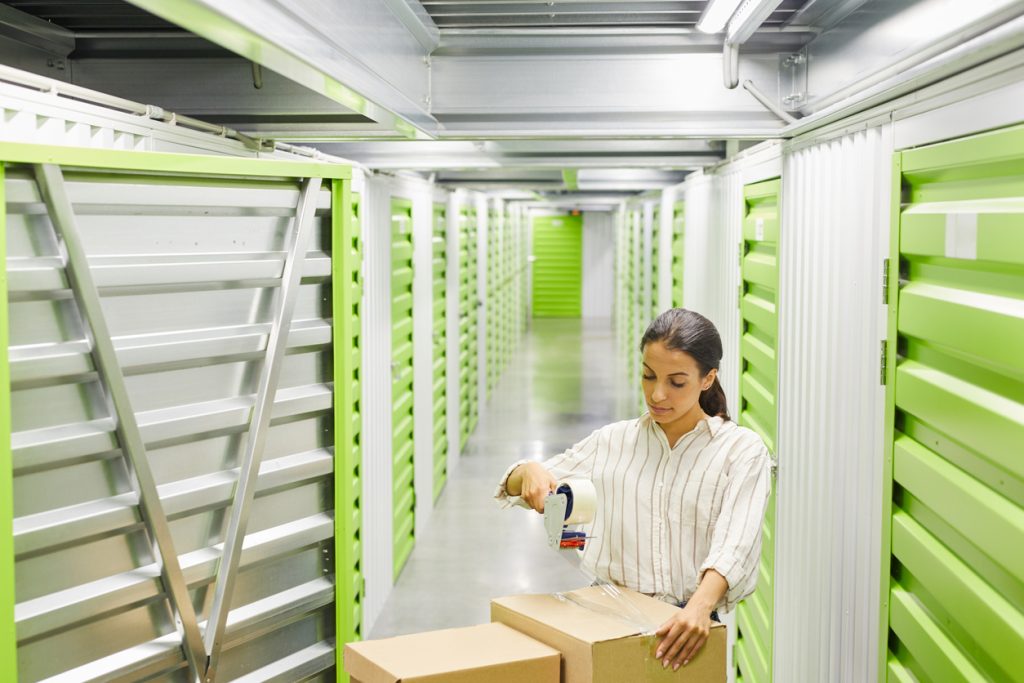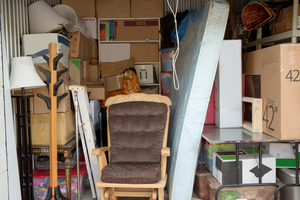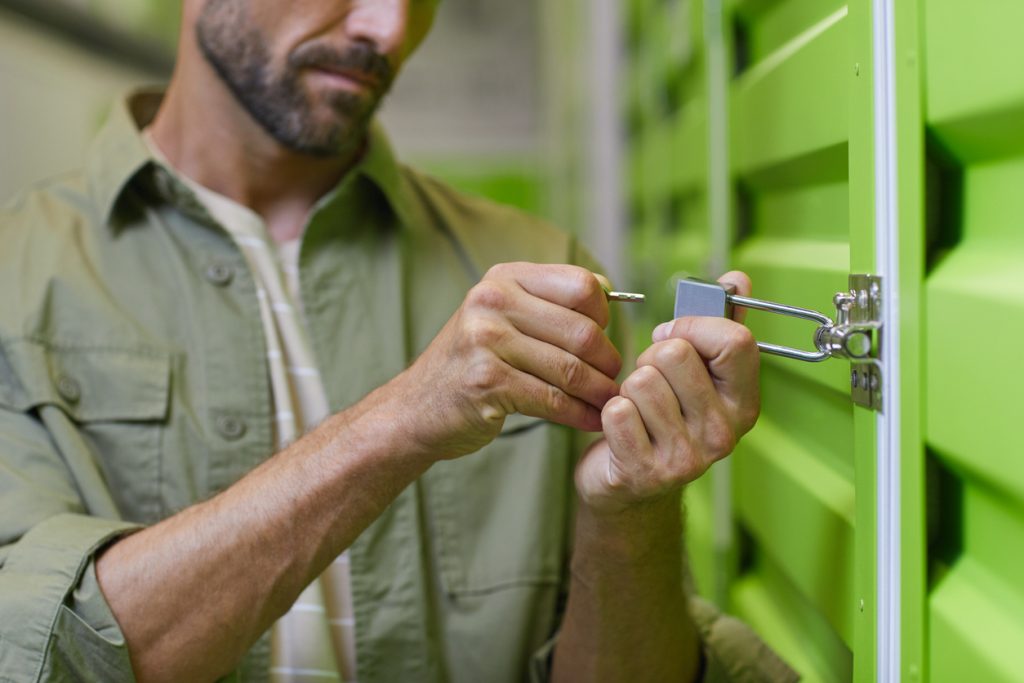The arrival of colder weather in winter brings with it increased risks when using self-storage – such as damp, mould, and the risk of flooding. Here, we’ve covered some factors to consider to keep your items secure if using self-storage over the winter period.
In this guide, we’ve covered a few major risks to be aware of, and what you can do to keep your belongings safe and secure while in self-storage this winter.
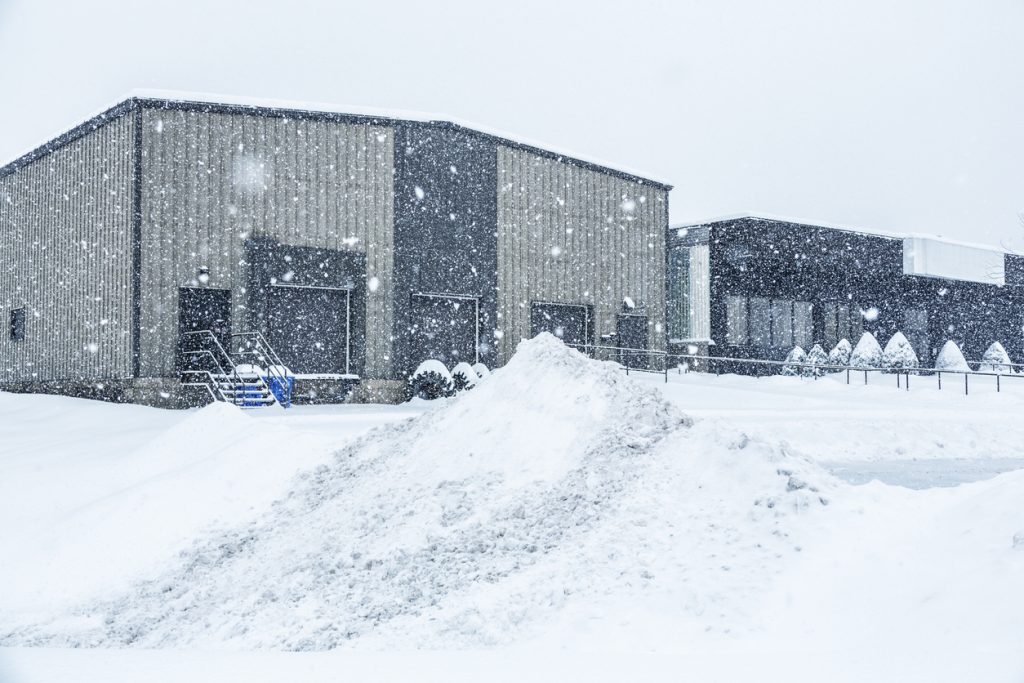
Are There More Risks When Using Self-Storage in Winter?
Winter presents some unique challenges for self-storage users that you may not have to consider if you were using your unit in the summer. For example, the freezing temperatures, snow, and rain all have the potential to negatively affect both the storage unit and the items stored within.
To avoid discovering your items have been damaged during the winter, it’s crucial to be aware of these risks and take the necessary precautions. While the summer months definitely have their own risks to be aware of (such as an increased risk of fire, for example), winter certainly brings a whole new set of things you’ll need to watch out for.
Risks To Be Aware Of
Here, we’ve covered some of the major risks to be aware of over the colder month.
Remember, staying informed is one of the first steps to ensuring you don’t have an unpleasant discovery in a few months time by not protecting your items properly!
Flooding
There is an increased risk of flooding in the winter due to more rainfall across the country – but depending on where you are based in the UK, you may be particularly at risk. Check the long term flood risk for an area in England to see if your storage unit might at risk.
If you discover that you could be at risk of flooding, take extra steps to keep your items safe in your unit should this happen. Things you can do include placing sandbags by the entrance to your unit, storing items at a higher level (keeping them off the floor!), and making sure any electronics, sentimental items, or other valuables are wrapped and secured up high.
Mould and Mildew
With temperature fluctuations in winter, condensation can form inside units, providing the perfect environment for mould and mildew to thrive. If you have soft furnishings, clothing, or furniture stored in your storage unit, this could just be the recipe for destroyed belongings if you don’t take the necessary precautions!
Materials such as fabric, wood, and paper are particularly susceptible to moisture damage. Make sure they are completely dry when placing them in storage, and store in airtight containers or covered where possible.
You could also place a few dehumidifyers in your storage unit to help draw the moisture out of the area.
Vermin
Rodents and other pests will often seek shelter from the cold, often finding refuge in storage units if there’s an opening for them! Vermin and pests are something to watch out for year-round, but there’s an increased risk of them taking refuge in your storage unit during the winter.
They can chew through boxes, ruin upholstery, and contaminate your belongings – so taking steps to prevent them from getting in is the best thing you can do. Check your unit for any holes or easy openings, and highlight these to your storage facility.
It’s also a good idea to make sure any clothing or soft furnishings are stored in a secure container, so any pests that did manage to get into your unit can’t easily turn your favourite coat into a cozy nest!
Keeping Your Belongings Safe in Self-Storage Over Winter
Clothes & Soft Furnishings
When it comes to storing clothes and soft furnishings over the winter, taking steps to protect these items from moisture and pests is crucial. One effective way to accomplish this is by placing them in vacuum-sealed bags.
These bags not only save space but also provide a solid barrier against moisture, mold, and mildew. They can also deter pests like insects and rodents, keeping your belongings safe and intact.
Additionally, it’s wise to elevate these items off the floor to prevent any water damage from potential flooding. Placing them on shelving or storing them in airtight containers can provide that extra level of protection. This way, in case any water does make its way into your storage unit, your clothes and soft furnishings remain dry and undamaged.
Furniture
Storing furniture, especially large pieces, can often feel like a game of Tetris – you have to know the right way to pack your belongings!
To make this task easier and to reduce the likelihood of damage, it’s advisable to disassemble furniture into smaller pieces. This will not only save space but also make the items easier to move and store. Taking off the legs of tables and disassembling bed frames can go a long way in preserving the integrity of your furniture.
Furthermore, covering your furniture with protective sheets or plastic wrap can keep dust, moisture, and pests at bay. This extra layer of protection can be the difference between maintaining the pristine condition of your furniture and discovering unsightly mold or pest damage come spring.
Paperwork
Important documents are often sensitive to temperature and moisture. Over the winter months, it’s prudent to store them in waterproof containers or safes to prevent any water damage. This will ensure that your documents remain dry and readable, protecting valuable information.
A supplementary measure to consider is the use of silica gel packets. These packets can be placed alongside your documents to absorb any excess moisture that may accumulate within the storage container.
By keeping the environment dry, you’re adding an extra level of protection to your important paperwork.
Antiques
Antiques are often delicate and require a higher level of care when being stored. Wrapping them in protective material and placing them in well-padded boxes can help absorb any shocks and keep them safe from scratches or other damage.
It’s crucial to ensure that these valuable items are well-protected from the harsh winter conditions.
For those with a collection of valuable antiques, investing in a climate-controlled storage unit might be a wise decision. These units maintain a consistent temperature and humidity level, providing an ideal environment for sensitive items.
While the cost may be higher compared to standard units, the peace of mind knowing your precious antiques are safe from winter’s harsh elements could be well worth the investment.
Other Household Items
- Use sturdy plastic containers with tight-fitting lids for general storage.
- Label boxes clearly and keep an inventory to ensure nothing gets misplaced.
Cover Your Items with Self-Storage Insurance
Securing a comprehensive storage insurance policy for your stored belongings is a wise decision year-round. It provides an extra layer of protection against unforeseen circumstances, such as theft, fire, or weather-related damage.
Remember, it’s better to be safe than sorry when it comes to safeguarding your precious possessions against the unpredictable winter weather.
Find out more about storage insurance and get a custom quote for your needs today.


